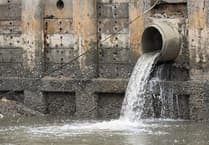If the question cropped up during a pub quiz, it might be thought so unlikely as to be implausible: name the editor and publisher who’s been banged up in Belmarsh high-security prison in London for three years and seven months though not charged with any offence in Britain.
I refer to Julian Assange, joint founder of WikiLeaks, the Australian the US Justice Department has been attempting since June 2019 to extradite from Britain and put on trial for publishing, in 2010 and 2011, thousands of leaked military and diplomatic documents, which disclosed diplomatic scandals and spy affairs on an international scale. The case would be brought under the Espionage Act, a century-old statute that has never before been used over publication of classified information.
Assange’s lawyers argue that he was acting as a journalist and is therefore entitled to First Amendment freedom of speech protections. Reporters Without Borders, which campaigns to safeguard the right to freedom of information, say the implications for journalism around the world if Assange is extradited “cannot be overstated”.
Meanwhile, Australian prime minister Anthony Albanese has personally urged the US government to end its pursuit of Assange, and newspapers including The Guardian, The New York Times and Le Monde, which first helped him publish the leaked materials in 2010, are urging America to drop the prosecution because it undermines press freedom. They are right. If extradition went ahead, it could have an oppressive effect on journalistic inquiry by reporters of any nationality working outside the US, who could find that publishing material regarded by America as sensitive could result in extradition attempts.
The request to hand over Assange has been approved by the British government, but the WikiLeaks founder’s three-and-half-year struggle against extradition continues - in the High Court, and through an appeal to the European Court of Human Rights. He has been held throughout at Belmarsh.
One of his strongest supporters has been Ben Lake. The Ceredigion MP tells me: “I remain deeply concerned by the detention and continued persecution of Julian Assange by the UK and US authorities, but was delighted to read the intervention by the Australian prime minister. I agree with him that the persecution of Mr Assange needs to end, and fear that the concerns raised by the UN working group on arbitrary detention are being ignored.
“In Parliament, the campaign to oppose Mr Assange’s extradition continues…Written questions are being submitted to government departments in an attempt to ascertain what discussions the UK government is having with the US about Mr Assange’s case.
“Separately to the campaign, I wrote to Priti Patel, when she was Home Secretary, to ask her to reconsider the terms of the extradition treaty signed with the USA in 2003, and have asked whether the government has made any assessment of the treaty’s impact on the number of extraterritorial legal actions launched by US against individuals in the UK. I did not receive a substantive response from Priti Patel before her departure from the Home Office, and regret to note that I still await an answer from her successors.”
Ben Lake’s intervention in a case of great importance to press freedom is invaluable. At the same time, his deeply humane advocacy, principled and unrestrained, makes him certainly Ceredigion’s best MP in living memory.





Comments
This article has no comments yet. Be the first to leave a comment.